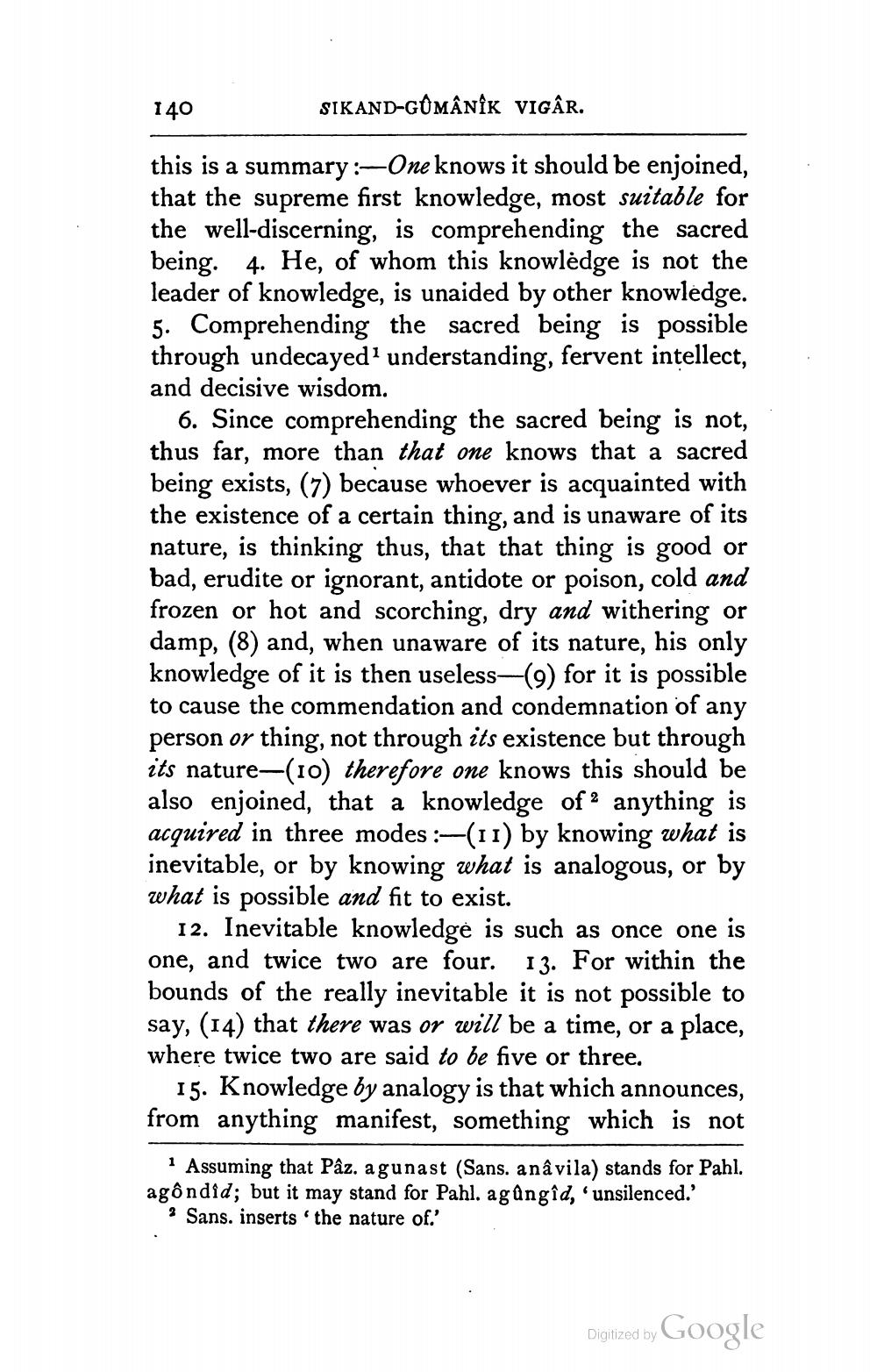________________
140
SIKAND-GŪMÂNÍK VIGÂR.
this is a summary:-One knows it should be enjoined, that the supreme first knowledge, most suitable for the well-discerning, is comprehending the sacred being. 4. He, of whom this knowlėdge is not the leader of knowledge, is unaided by other knowledge. 5. Comprehending the sacred being is possible through undecayed? understanding, fervent intellect, and decisive wisdom.
6. Since comprehending the sacred being is not, thus far, more than that one knows that a sacred being exists, (7) because whoever is acquainted with the existence of a certain thing, and is unaware of its nature, is thinking thus, that that thing is good or bad, erudite or ignorant, antidote or poison, cold and frozen or hot and scorching, dry and withering or damp, (8) and, when unaware of its nature, his only knowledge of it is then useless—(9) for it is possible to cause the commendation and condemnation of any person or thing, not through its existence but through its nature—(10) therefore one knows this should be also enjoined, that a knowledge of anything is acquired in three modes :-(11) by knowing what is inevitable, or by knowing what is analogous, or by what is possible and fit to exist.
12. Inevitable knowledge is such as once one is one, and twice two are four. 13. For within the bounds of the really inevitable it is not possible to say, (14) that there was or will be a time, or a place, where twice two are said to be five or three.
15. Knowledge by analogy is that which announces, from anything manifest, something which is not
Assuming that Pâz, agunast (Sans. anâvila) stands for Pahl. agôndid; but it may stand for Pahl. agûngîd, 'unsilenced.'
Sans. inserts the nature of.'
Digitized by Google




